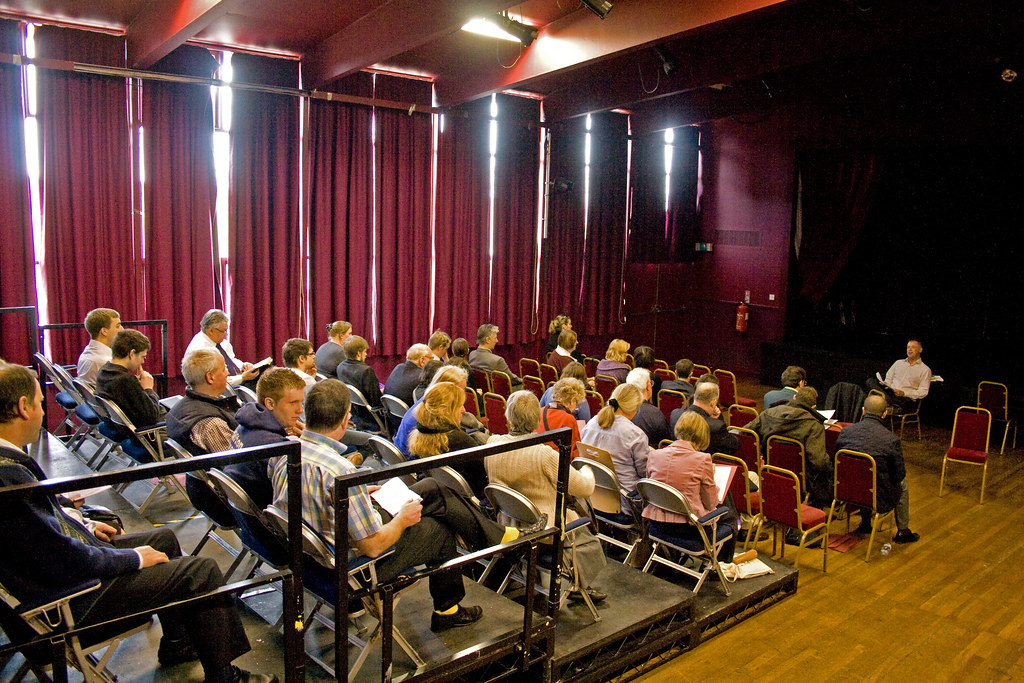Further to the notice of the Chant Forum meeting to take place shortly in Pluscarden, Fr Benedict Hardy has sent me this report on last year's meeting in Downside.Chant Forum Meeting, Downside Abbey 11-14 May 2009The “Chant Forum” is a wholly informal grouping of UK monastic musicians, gathered under the benign umbrella of the Panel of Monastic Musicians, though with its focus exclusively on Gregorian Chant. The Forum met for the fourth session of its existence at Downside Abbey in May 2009. Numbers were a bit down from previous years, for various reasons including canonical Visitations, community Retreats, poor health, and assorted other incompatible commitments. Nevertheless, the 16 booked participants were joined by several Downside monks who joined us for many or all of the sessions, and we had a truly excellent meeting, which all present very much appreciated, voting with unanimous voice for more of the same next year.
...
The main speaker at this session was Père Xavier Perrin, Choir Master, Novice Master and Prior of Kergonan Abbey of the Solesmes Congregation in Brittany. We were very fortunate indeed to have him. He has a deep knowledge and love of the Chant, and very considerable musical ability. His English is more or less fluent: well able to express his teaching points on music, liturgy and prayer, and also his rather dry humour, seldom far from the surface.
Appropriately for the Year of St. Paul, the theme Dom Xavier chose was St. Paul in Gregorian Chant. First of all, he presented Paul’s doctrine of how to pray as a key to understanding the Chant. “I will pray with the spirit, but I will pray with the mind as well” he says in 1 Corinthians 14:15. Accordingly the Chant is rooted in the word, the text, which is always primary: it is not mere sound, but always conveys clear meaning. Yet this word, this text is expressed with free musical movement. We can think of this as representing the spirit, whose depths reach far beyond earth-bound human comprehension. Dom Xavier continually returned to this idea: that in Gregorian Chant we have a perfect union of word and spirit, and this above all is why this music is so much honoured in the Church, and still so valuable for us today.
There are relatively few Pauline texts in the Gregorian corpus. In the current Graduale Romanum indeed, only 17, of which one is a 19th century “neo-Gregorian” composition, and another a mediaeval adaptation, setting Pauline words to a pre-existing melody. We were therefore able to look during these days at a good portion of the available repertoire in some detail.
Here I mention briefly just two Pauline Chants we were taken through: both given for the feast of St. Paul’s conversion on 25 January. First, the Introit, setting the text of 2 Timothy 1:12: Scio cui credidi... Originally sung on 30 June, the implicit reference to the Introit for 29 June would formerly have been more obvious. There St. Peter sang Nunc scio vere ... (Acts 12:11). It’s as if the two Apostles sing antiphonally of what each knows; though as befits their very different characters, in very different musical mood (IIIrd mode for St. Peter, Ist for St. Paul). The composer of the Pauline Introit well captures the Apostle’s confident affirmation of invincible faith, especially on that striking intonation “Scio”. The word that he chooses to draw out most of all, however, is the “in” of “in illum diem”. In this way the music points with emphasis to the future, inviting us to make our own not only Paul’s faith, but also his hope.
Then in the Gradual for 25 January we have, as was typical for Gregorian composers, a combination and adaptation of scriptural texts. We start with Galatians 2 then move on to 1 Corinthians 15: Qui operatus est Petro... Gratia Dei in me vacua non fuit... Again the composer draws attention to the contrast with Peter. As Paul boldly establishes his own Apostolic claim the music soars up triumphantly. Yet there is no hint of pride, for all is based on grace. So the word “gratia” occurs three times in this wonderful piece, which Dom Xavier presented as Paul’s own Magnificat. Here as elsewhere we were invited to pray the text as we sing it: in Paul’s name, in our own name and in the name of the whole Church.
As well as his detailed analysis of pieces, Dom Xavier also spoke to us about the earliest Chant manuscripts, especially that of St. Gall, dating from the early 10th century. Why was it written? Certainly not to be sung from as we sing from a score today. Perhaps a clue is to be found in the carved ivory box that was made to house the precious volume. The suggestion was made that this whole work of art was conceived as a cultural monument: a concrete affirmation of the importance of the texts and music which this community had received, and wished to pass on, in aural tradition. The beautifully executed signs above the words should not be understood as merely describing the series of notes to be performed. Rather they convey visually how these sacred words are enthroned by this inherited musical gesture.
Not to be omitted from this write-up was the contribution of Jennifer Smith, professor at the Royal College of Music. She conducted an ever-timely session on voice production and breath control. “Keep the breath low and the voice high!” She followed Dom Xavier in lacing her instruction with theology: when we breathe in we take in, as it were, God’s breath; we incarnate his Word in our lungs, then breathe forth his Spirit. ...
Next year’s session to be here at Pluscarden. The main speaker is to be Mr. Jaan-Eik Tulve, master interpreter of Gregorian Chant. He has a great deal of experience helping monastic Choirs around the world, including our own, and we very much look forward to welcoming him back.









